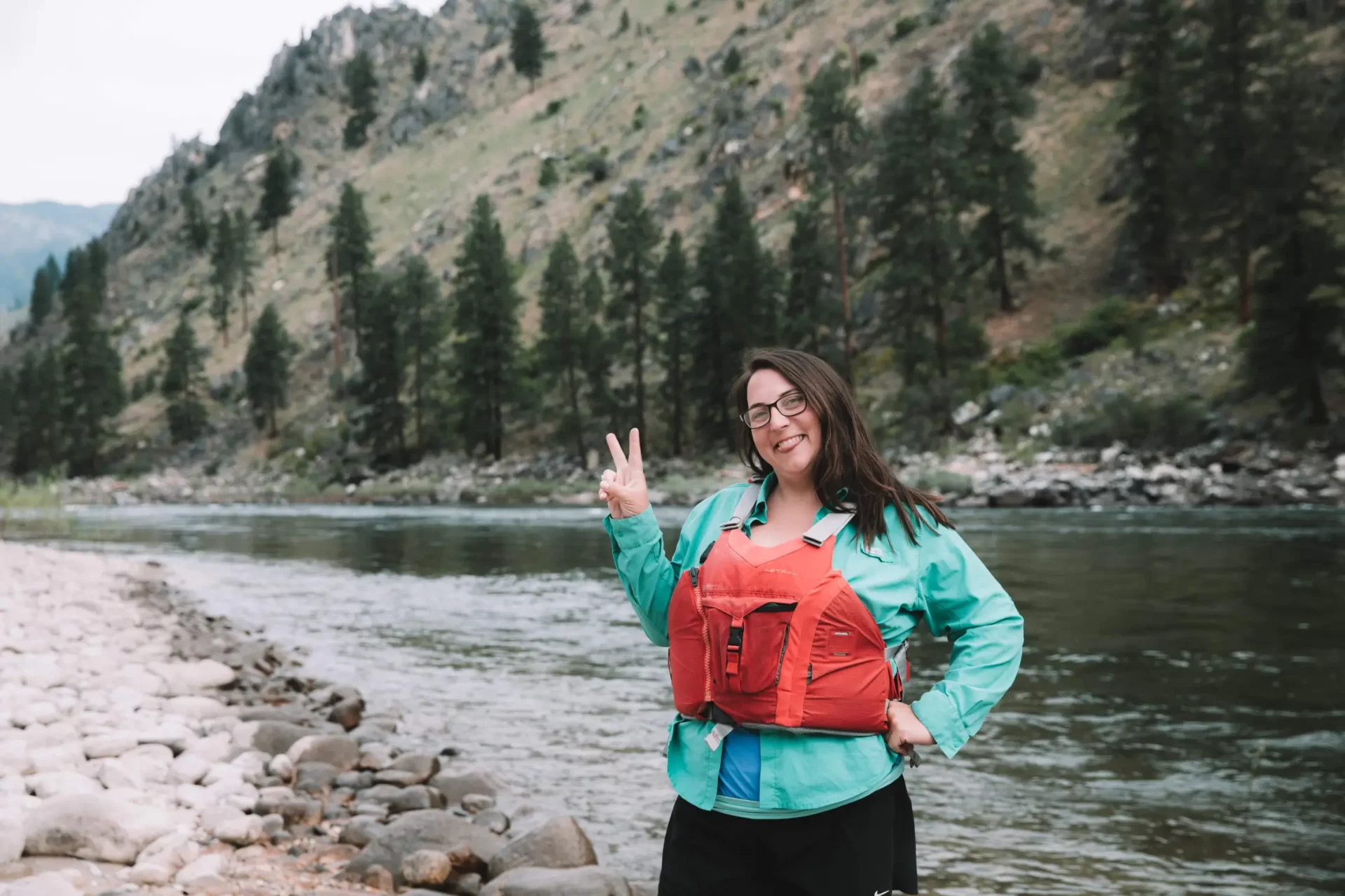On the Salmon River Workshop in June, students practiced interviewing and honed their observation skills by writing short profiles of one another.
We love this exercise for how it improves our writing skills and it’s an added bonus that it brings the group closer together. Sharing these profiles around the circle on the last night had more than one of us wiping away tears. Here are a couple of our favorite profile pieces from the exercise.
NATHAN, by Tracy Herring

Nathan whose self-proclaimed nickname at 10 years-old was Harry, which he spelled H-E-R-R-Y and pronounced Herrrrry. During his Herry days, he would visit the neighbors to see if they needed any help fixing things in their houses and he would voluntarily shovel driveways after a snowstorm. He eventually returned to his given name, but continued to find ways to provide service to others. He spent his summers during college taking at-risk youth on transformative multi-day wilderness trips, he facilitated a handful of wilderness rescue missions, and he is currently working towards becoming a nurse, with a potential interest in pursuing wilderness nursing.
The outdoors are an important thread in Nathan’s life. He thrives in the wilderness, where he loves having “no rules” or “structure.” He explained his various outdoor pursuits have involved unexpected challenges and tragedies, which he shared, help him navigate the inevitable challenges all humans face throughout their lives.
He shared a recent personal challenge regarding his dog, Powell. Nathan found Powell or maybe Powell found Nathan on a trip in Utah. They found each other when they both were suffering. They nursed each other back to health. They relied on one another. They reached a place of contentment together. That’s why six months ago, when Powell, just six years-old, suddenly stopped eating, and his body started shutting down, and no medical intervention could save his beloved companion, Nathan’s world collapsed.
He claims his experiences with hardships and unpredictability in the outdoors have been helpful in working through the grief of Powell’s unexpected death. However, I can tell by the way he stares off into the distance while he talks about Powell that this loss still devastates him no matter how many hardships he has faced in the wilderness.
What makes Nathan so special is that he loves and cares so deeply, be it the neighbors he helped when he was growing up, Powell, his family, his partner, or his friends.
AMANDA, by Sandra Messick

She’s chosen to fight a big battle. At times it makes her feel very small. But 29-year-old Amanda Clampitt wouldn’t have it any other way.
“It’s all because they need white paper. But who needs white paper anymore?” she asked as we floated down the Salmon River.
The river was quiet. No need to be on guard. “This is the best moment ever,” she said and a smile spread across her face as she closed her eyes, laced her fingers behind her head, laid back, and stretched her legs out along the side of the big, blue rubber raft.
We were on a six-day writing workshop put together by the Freeflow Institute. Fourteen people and four crew members making our way down 90 miles of the Salmon River in Idaho. This was our fourth day.
Amanda is happiest when she’s on a river. “I found white water when I was very lost. I found a family. I found a community that was accepting. The white water healed me.”
When she was 11-years old, she moved to Eastern Tennessee settling in with family in Appalachia in the small town of Hartford that the 60 people there call home during most of the year. In the summer that changes, growing to about 500 people who come to enjoy the rivers nearby. “It becomes a summer camp for adults,” she said with a laugh.
Amanda is a river guide for Big River Creek Expeditions. She also does marketing for the white- water rafting company. Six days a week she takes up to seven people down the waters of the Ocoee and Pigeon Rivers. She does it for the peace those waters bring her and also because she’s working hard to bring change.
In 1908, Champion International, acquired by International Paper in 2000, opened a paper mill on the Pigeon River and changed life as they knew it for the entire community. “The waters of the river ran coffee black. Locals will not go in the water.” Amanda was warned by a friend of hers who runs a sustainable farm and education program nearby that she would shave years off her life by working on the rivers. “It’s still worth it to me,” Amanda said. “Rivers have this healing property.”
She wants this community to get their river back. She wants to help heal the waters as they’ve healed her. “It’s very powerful to be a voice for the voiceless.”
Amanda and her friend her friend Mindy are working on a children’s book together called “A Pigeon’s Tale.” Through Amanda’s story and Mindy’s water color illustrations they share the story of the Pigeon River from pollution to redemption.
“We want to publish and distribute the book for free. We hope to get it into schools.” She also hopes it will inspire others in her community to get involved by helping her track the dioxins in the river and convince Champion International to close down the mill.
Amanda’s trip to the Salmon River is a time to help her recharge. And while she says that’s happening, I can see in her face and body that she still has something on her mind. “It’s very disconcerting that a river like this, with the highest government protection, faces similar challenges as the Pigeon. It sucks!”
Then a smile spread across her face as she closed her eyes, laced her fingers behind her head, laid back, and stretched her legs out along the side of the big, blue rubber raft. “This is the best moment ever!”
